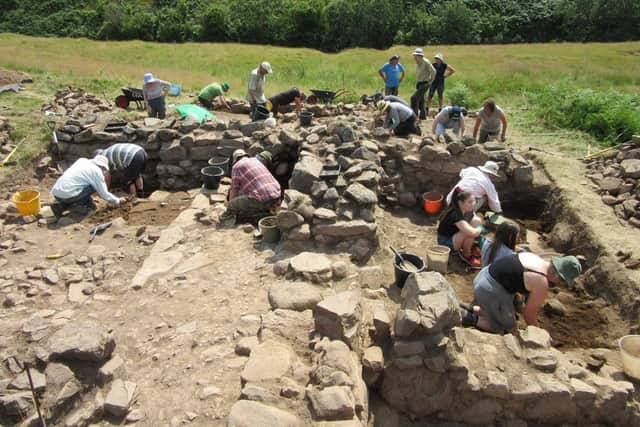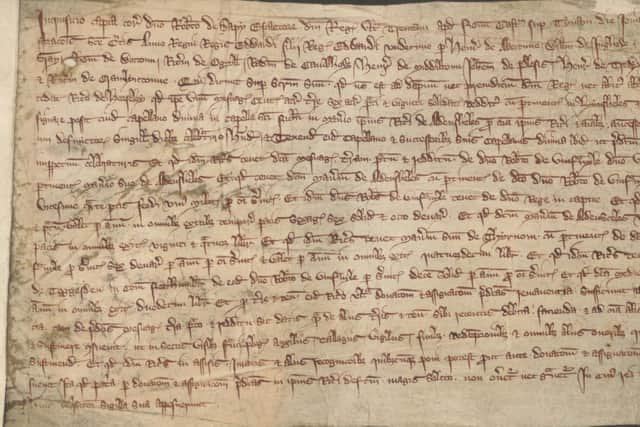Letter confirms Northumberland community archaeology group's discovery of 700-year-old chapel
and live on Freeview channel 276
Coquetdale Community Archaeology (CCA) has run fieldwork excavation projects since 2011 but the focus over the past five years has been on a medieval settlement a couple of miles upstream from Alwinton.
David Jones, chair of the 100-strong group, said: "To date we have worked on a 14th-century building that was probably a farmhouse, a grain-drying kiln and a set of much-damaged medieval remains that had been repurposed in the 17th century, probably for stock management.
Advertisement
Hide AdAdvertisement
Hide Ad“Every year we found items that did not belong in an upland farming community. Typically these were blocks of decorated stone that were almost certainly ecclesiastical in origin. Some of them were too large to have come far.


"In 2022 we found a fragment of coloured glass (known as flashed ruby) that had almost certainly been imported from mainland Europe - quite possibly Normandy.
“Through lots of archive research we discovered that the site we were studying had been on a medieval manor called Aldensheles, and that there had been a chapel on that manor in the early 14th century.”
LiDAR data led to a theory on the whereabouts of a chapel on the site and, with permission from Historic England to investigate it last year, it turned out they were right.
Advertisement
Hide AdAdvertisement
Hide AdSince the discovery, the group found a letter in Latin that mentions the medieval chapel in the National Archives in London and found that it was dedicated to St Nicholas.


The letter was an inquiry into alienation in mortmain for the man who either owned the manor, or was the tenant in chief, where the chapel was located. As a penalty, he had to pay and get a chaplain to say Mass every day in the chapel for his soul and the souls of all Christians.
"The two things coming together have been really very, very rewarding,” David added. "We hope to go back to the site this summer if we get permission because there are still questions to answer.”
The group also enjoy talks and guided archaeology walks